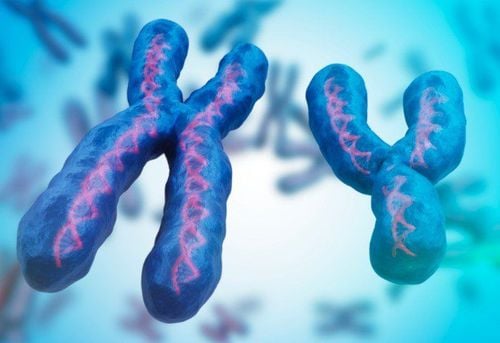This is an automatically translated article.
Article by Dr. Dao Thi Mai Lan - Medical Specialist - Gene Technology - Vinmec Institute of Stem Cell and Gene Technology
Can you drink coffee while pregnant is a matter of concern for many people. In fact, there have been many studies that have proven that pregnant women who drink coffee will have low birth weight babies and increase the risk of many other diseases.
According to a study at the US National Institutes of Health (NIH), pregnant women who consume caffeine equivalent to half a cup of coffee a day have slightly lower birth weight babies than pregnant women. Do not consume beverages containing caffeine. The researchers found a corresponding decrease in length and body weight for infants whose mothers consumed less than 200 milligrams of caffeine per day (about two cups of coffee). Smaller birth sizes can put babies at higher risk of diseases like obesity, heart disease, and diabetes as they grow up.
Research led by physician, Dr. Katherine L. Grantz, of the Internal Population Health Research Division at NIH's Eunice Kennedy Shriver National Institute of Child Health and Human Development, is published in the journal JAMA. Network Open.
Dr Grantz said: “Our results suggest that pregnant women may need to be cautious, limiting or eliminating caffeinated beverages during pregnancy. Women should also consult their doctor about caffeine consumption during pregnancy."
Previous studies have linked high caffeine consumption (more than 200 milligrams of caffeine per day) during pregnancy with a small baby for gestational age or an increased risk of intrauterine growth restriction. bow. However, studies of moderate daily caffeine consumption (≤200 milligrams) during pregnancy have mixed results. Some studies have shown a similar increased risk for low birth weight and other poor birth outcomes, while others have found no association. The authors in this study note that many earlier studies failed to account for other factors that may affect infant length and weight, such as variation in caffeine content in varieties. different drinks and maternal smoking during pregnancy.

In this study, the authors analyzed data on more than 2,000 racially and ethnically diverse women at 12 clinics with women between 8 and 13 weeks of pregnancy. Pregnant women who do not smoke and do not have any health problems before becoming pregnant. Between weeks 10 and 13 of pregnancy, blood samples were taken and then analyzed for caffeine and paraxanthine, a compound produced when caffeine breaks down in the body. The women also reported consuming caffeinated beverages daily (coffee, tea, soda and energy drinks) during the past week once when they enrolled and periodically throughout their pregnancy.
Compared with babies born to women with no or minimal blood caffeine levels, babies born to women with the highest blood caffeine levels at birth were on average 84 grams lighter, afternoon 0.44 cm in length and less than 0.28 cm in head circumference.
Based on women's own estimates of the beverages they drank, women who consumed about 50 milligrams of caffeine per day (equivalent to half a cup of coffee) had infants 66 grams lighter than infants born from non-caffeine users. Similarly, infants born to those consuming caffeine also had a thigh circumference less than 0.32 cm.
The researchers note that caffeine is thought to cause blood vessels in the uterus and placenta to constrict, which can reduce the blood supply to the fetus and inhibit growth. Similarly, researchers believe that caffeine has the potential to disrupt fetal stress hormones, putting the infant at risk of rapid weight gain after birth and later obesity, heart disease, and diabetes. .
The authors conclude that their findings suggest that even moderate caffeine consumption may be associated with reduced fetal growth.
Please dial HOTLINE for more information or register for an appointment HERE. Download MyVinmec app to make appointments faster and to manage your bookings easily.
References:
Gleason, JL et al. Maternal caffeine consumption and metabolism and neonatal anthropometry in the NICHD Fetal Growth Studies. JAMA Network Open . 2021. doi:10.1001/jamanetworkopen.2021.3238














